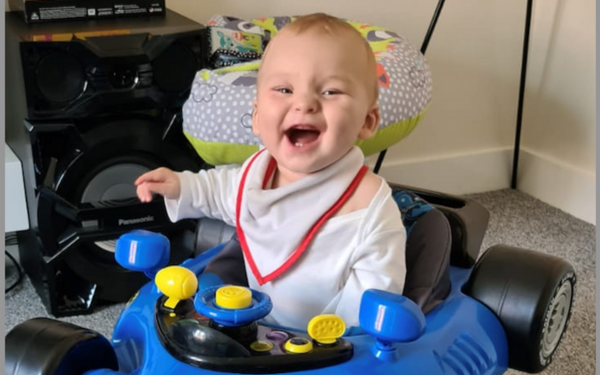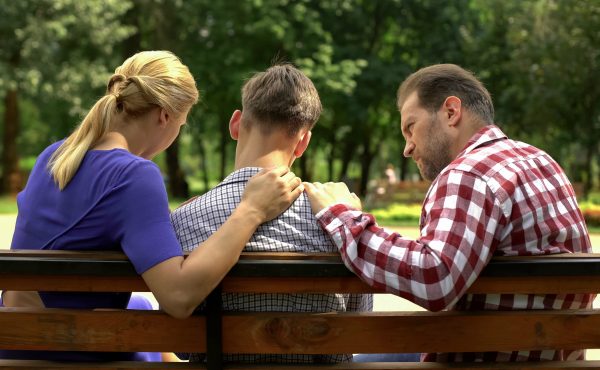
Social Work Recap is a weekly series in which we present key news, events, conversations, tweets and campaigns around social work from the preceding week.
This week’s includes an inside look into the treatment of autistic people and those with learning disabilities in mental health units, a £10m fund for social care research and evidence that helping children in care build support networks reduces their risk of homelessness.
Jacob Crouch: action taken to protect babies following case, says safeguarding body

Pictured: Jacob Crouch Photo by Derbyshire Constabulary
Action has been taken to better protect babies following the murder of 10-month-old Jacob Crouch, the local safeguarding partnership has said.
Jacob Crouch died at his home in Linton, Derbyshire, on 30 December 2020 after a “brutal” assault by his stepfather, Craig Crouch, who was jailed for life for his murder last week (source: BBC News).
Jacob suffered at least 39 fractured from assaults by Crouch over several months, according to prosecutors.
The boy’s mother, Gemma Barton, was cleared of his murder but was sentenced to 10 years for causing or allowing the death of a child.
A spokesperson for Derby and Derbyshire Safeguarding Children Partnership (DDSCP) said it carried out an unpublished rapid review into Jacob’s case, as required when a child dies or is seriously harmed and abuse or neglect is suspected.
They said DDSCP had since taken action to better protect babies and very young children, including issuing guidance on baby safety and delivering “extensive staff training to strengthen practice”.
The partnership did not carry out a local child safeguarding practice review into Jacob’s murder – a more in-depth probe of cases that raise important issues – a decision supported by the national Child Safeguarding Practice Review Panel.
Inside the ‘barbaric’ treatment of autistic people and those with learning disabilities in hospitals

Photo by deeaf/AdobeStock
The ‘barbaric’ treatment of some autistic people and people with learning disabilities in mental health units has been laid bare in an investigation for parliamentary magazine The House.
It featured the case of Danielle Attree, who had been sexually assaulted, violently restrained and locked in a room with only a mattress over the course of 14 years spent in 18 different units.
The trauma led to Danielle attempting to take her life multiple times, making herself physically disabled as a result.
“If you treated a dog the way we treat people like Danielle, you would be put in prison for a long time,” said her mother, Andrea Attree.
Danielle is among 2,000 autistic people and people with learning disabilities, including children, currently in mental health units, despite government pledges to move them into community settings in the wake of repeated abuse scandals.
While often admitted for short-term therapy, many ended up petrified by “chaotic” environments, with their resulting distress met with high use of restraint and sedation by staff, The House found.
Restraint Reduction Network manager Alexis Quinn, who was sectioned for four years, also spoke about the long-lasting trauma of being in solitary confinement.
“It’s utterly dehumanising having to urinate in front of people, eat on the floor with your hands because you’re not worthy of a table. I was in 12 different hospitals and it was the same in every one. This is a systematic failure”
£10m social care research programme launched

Photo: Fotolia/aquarious83men
A funding programme has been launched for research to “improve, expand and strengthen” social care services for adults and children.
The National Institute for Health and Care Research (NIHR) and will invest £10m through its research programme for social care (RPSC), with projects receiving up to £350,000 each.
Applications should support immediate and long-term social care benefits, have strong links with service users, carers and providers and be from teams with demonstrable research expertise.
RPSC will run two funding calls each year with the first going out on 27 September 2023.
Building support networks could reduce homelessness rates for care leavers – study

Photo: motortion/Adobe Stock
A programme helping looked-after children build support networks could reduce their risk of homelessness on leaving care, research has found.
The study, commissioned by the Centre for Homelessness Impact (CHI), found a 10% reduction in the likelihood of a care leaver being threatened with homelessness when local authorities had implemented the Lifelong Links scheme.
Under the programme, developed by the Family Rights Group, a co-ordinator works with children in care to identify and help them connect with adults who are important to them and can provide ongoing support.
The CHI report, carried out by researchers at King’s College London, said previous research had found that 14% of care leavers had slept rough.
“With our most robust model finding a 10% reduction in the risk of a young person leaving care being owed a homelessness prevention duty, we believe that Lifelong Links is a very promising intervention, which should be further rolled-out across England,” the report added.
Tweet of the week
I’ve travelled the country up and down for many years speaking to care leavers, professionals, teachers, and social workers. I’ve seen hundreds of care homes, both regulated and unregulated. Some good, some terrible, some unfit for purpose. What I do know is that children deserve…
— Chris Wild (@ccwild79) August 1, 2023
Do you want to share your views and reflections on social work with fellow practitioners by writing for us? Check out our guidelines page for information on how to share your ideas.



 Family help: one local authority’s experience of the model
Family help: one local authority’s experience of the model  ‘I spent the first three months listening’: how supportive leadership can transform children’s services
‘I spent the first three months listening’: how supportive leadership can transform children’s services  How senior leaders in one authority maintain a culture of excellence
How senior leaders in one authority maintain a culture of excellence  How staff support ensures fantastic outcomes for children and families
How staff support ensures fantastic outcomes for children and families  Workforce Insights – showcasing a selection of the sector’s top recruiters
Workforce Insights – showcasing a selection of the sector’s top recruiters 

 Facebook
Facebook X
X LinkedIn
LinkedIn Instagram
Instagram
Comments are closed.